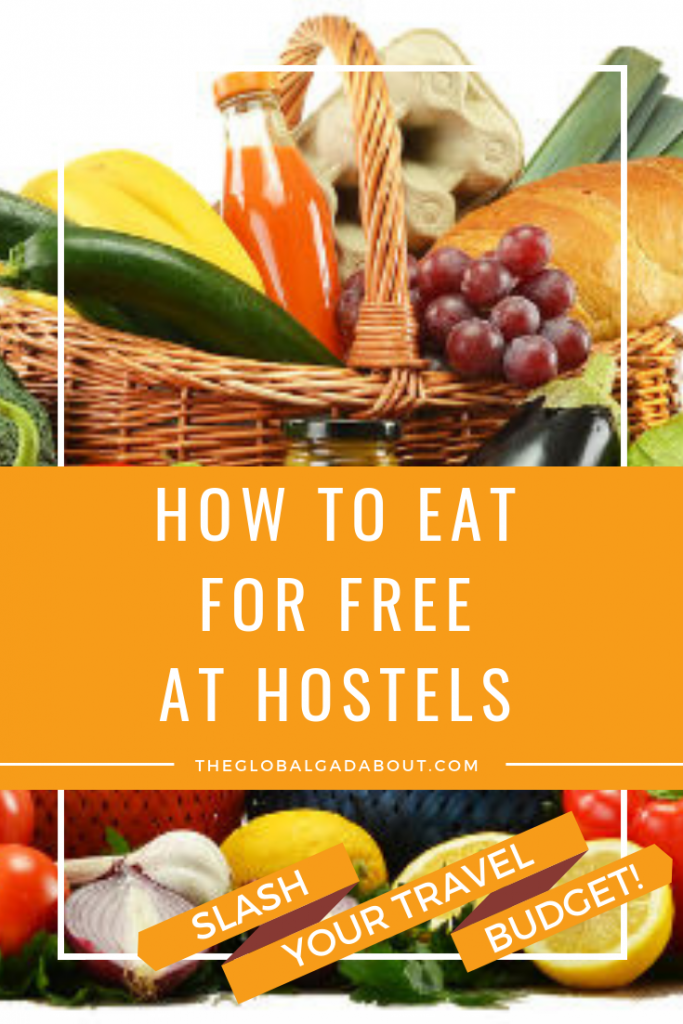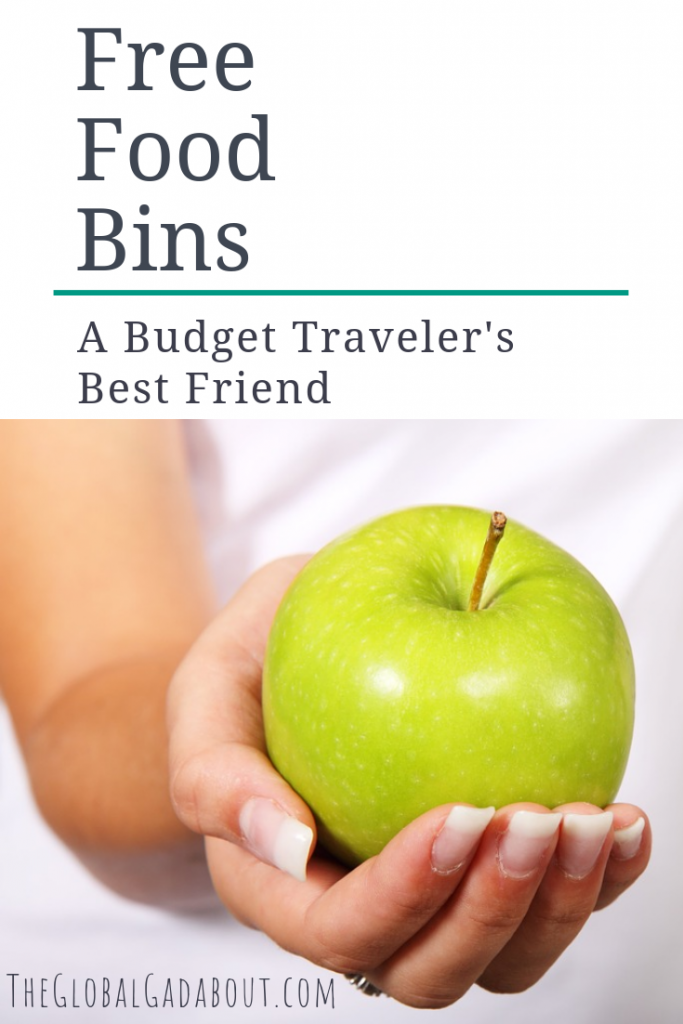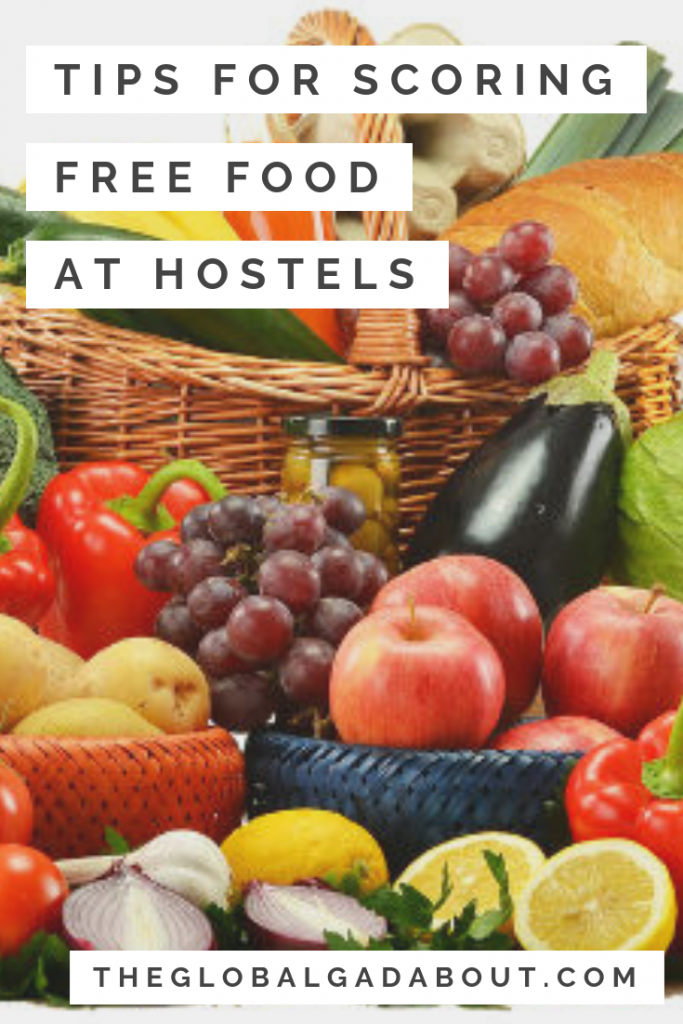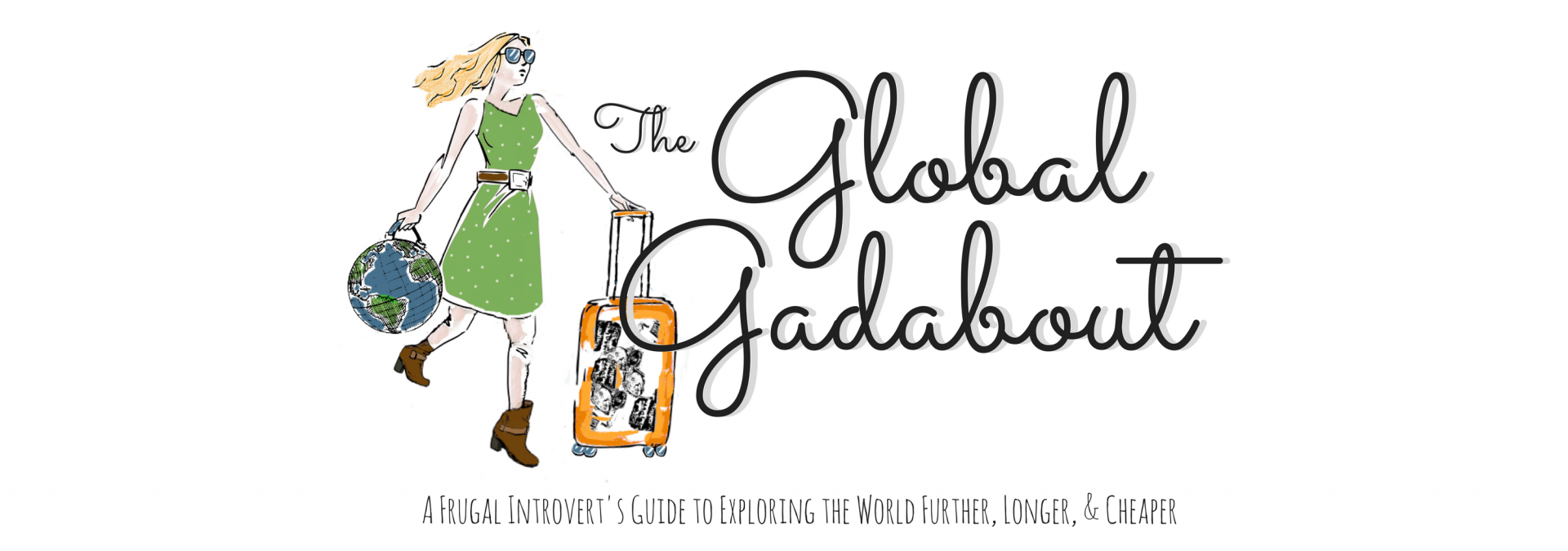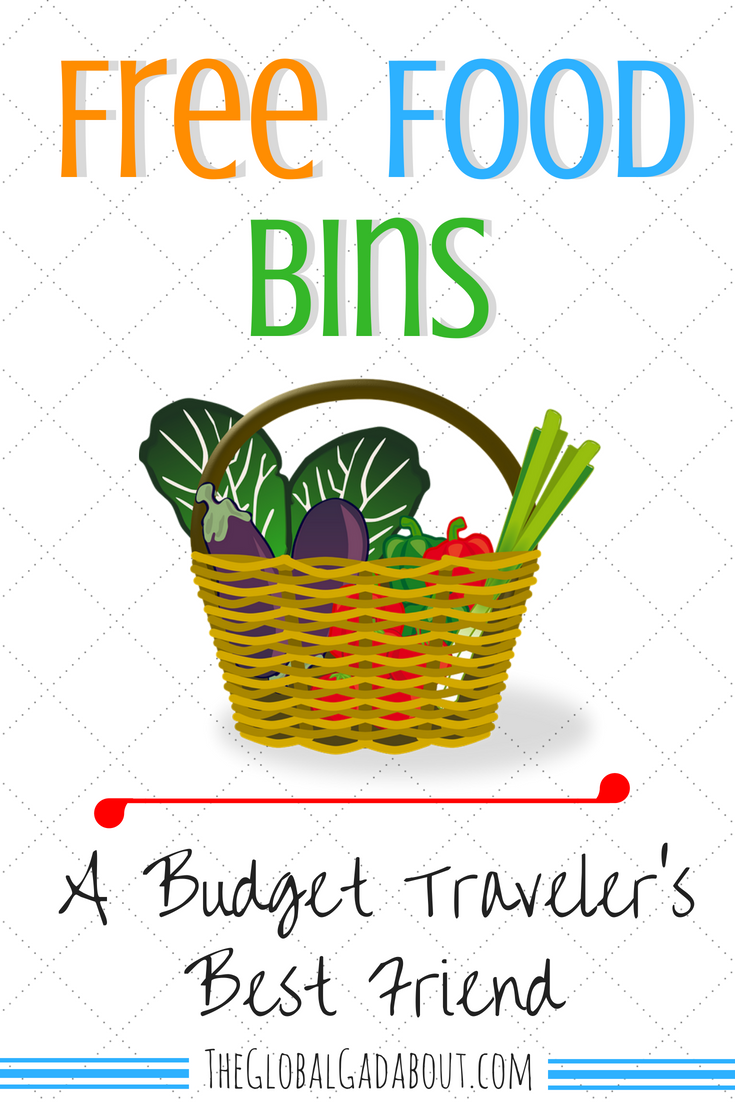
Hostels are great for the budget traveler. They are usually the cheapest bed around. You can meet other travelers with similar interests who might want to share costs or rides with you. You can swap out that heavy book you just finished for one another traveler left behind. Cutting costs by cooking for yourself instead of going to restaurants is very easy in a fully equipped hostel kitchen. Many will have pots and pans, oil and spices for everyone’s use, so you don’t have to carry around any of these items or deal with bland food. One of the benefits of hostel kitchens that many people don’t think about is the Free Food Bin.

What is a Free Food Bin?
For many budget travelers, going to the grocery store and purchasing the individual components to make a fabulous, home-cooked meal is cheaper than eating out at a restaurant. You can cater to your personal tastes and diet restriction better as well. Solo travelers especially, however, might not eat the entire package of whatever food item they bought. It’s heavy and cumbersome to carry leftovers with them to their next destination, not to mention that it might be impossible due to lack of refrigeration or it might just be the end of their journey. Whatever the case, they don’t want to take it with them, but they don’t want it to go to waste. Enter the Free Food Bin. Many hostels have a bin, basket, or shelf in the kitchen or refrigerator where people can leave food they no longer want but is still perfectly edible. Other hungry travelers can then pick it up when they arrive and get a free meal, or at least part of a free meal.

Budget Friendly
The most common things I’ve seen in free food bins are condiments, jams, bread, pasta, and rice. Sometimes, you get some goodies like fresh fruit and veggies, granola bars, and oatmeal. There’s usually something you can use to supplement your meal, and sometimes supplies for an entire meal or more are sitting there free for the taking. I once ate (and ate well!) exclusively out of the free food bin for an entire week at a particularly remote hostel where there were no restaurants, so everyone cooked, and a lot of hikers, so no one wanted to lug leftovers with them when they headed back out on the trail. It was a huge savings! Even if you only get part of a meal from the free food bin, that’s just one less thing you need to spend money on!

Waste Not Want Not
Another great benefit of free food bins is that they help prevent waste. Perfectly good, but unwanted, food doesn’t get thrown out but used by others who do want it. It not only saves money but resources. I hate to see perfectly good items in the trash, so this bonus aspect of my frugal tendencies really appeals to me.

Tips for Using the Free Food Bin
- Scope it out upon arrival. The best items go fast, so don’t wait until everyone is wanting dinner to look at what free goodies are available. One of the first things I do when checking into a hostel is do a round, checking out the bathrooms, common areas, and kitchen. I look at what kitchen utensils, oils, and spices are available and take anything I think I might want out of the free food bin. I label it for myself so no one else takes it. If I don’t use it, or all of it, I can always put it back in the free food later. This way I not only get the best items, but I know what other ingredients I might want to buy before cooking to supplement my free dinner.
- Be frugal, not foolish. Don’t eat something you don’t really want or that looks questionable just because it’s free. Look out for open packages that have not been sealed properly, things that look like they’ve been sitting there a bit too long, anything that should be refrigerated that is not in the fridge, food that has spilled out of the packaging, and anything that has already been cooked once. I wouldn’t say never use any of these, but as a rule of thumb, it’s probably not a good idea.

- Be kind. Only take what you really think you’ll use. Don’t hog everything. There are other hungry travelers, too!
- Reciprocate. I have no qualms about taking whatever I might use from the free food bin without contributing to it. However, if you find yourself with some extra food that would be tricky to bring with you, consider paying it forward and leaving it for someone else. This also goes for buying ingredients to make your own food. Don’t avoid the meal you want to make because you have to buy higher quantities than you’ll use. It’s still probably cheaper than eating out, and someone else can use whatever you have leftover.

Pin this post for later!
